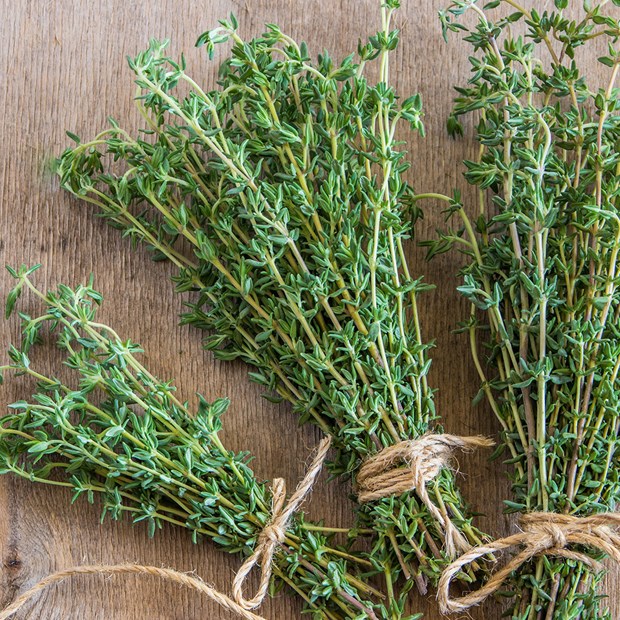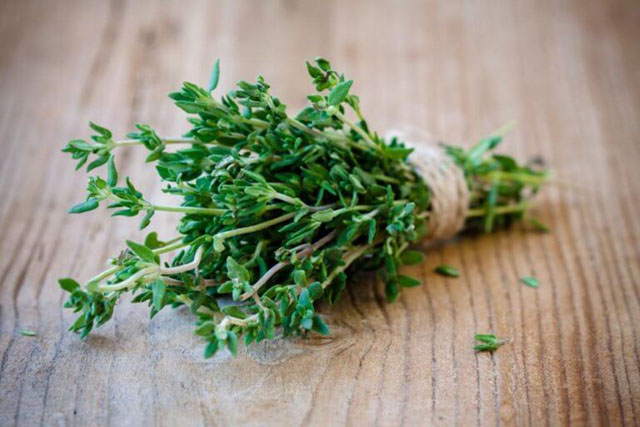Thyme properties and benefits herb-wonder. All of us are familiar with the various properties and benefits of the thyme. Undoubtedly, Mother Earth has given humans one of the most beautiful gifts that allow us to create recipes – plants and herbs.
So let’s take care of the environment. Today, for almost every pill and medicine there is an alternative to the world of natural gifts. Here we will meet the thyme, this plant of the quartz family, which is one of the most beneficial herbs on earth.
It is an antiseptic possessing bactericidal and expectorant properties that kill germs; Strengthens the immune system; Eliminates toxins; Increases resistance to foreign organisms.
Therefore, without having to do more, we will tell you some important facts about the thyme with the intention of adding this plant to your life, which will undoubtedly become a favorite. Its use is very common in respiratory infections because it is a disinfectant for the lungs and is useful in:
Throatache; coughing; asthma; bronchitis; laryngitis; nasal infections. It is also used to treat physical and mental weaknesses such as:
– an effective remedy for depression, chronic fatigue and lack of concentration;
– improves blood circulation
– improves memory;
– increases blood pressure when its level is too low.
As a powerful antibacterial and antiseptic agent, essential oil of thyme is widely used in hand disinfection solutions.
Other additional ways of using thyme:
Heals fungal nails; kills parasites; used to treat candidiasis and vaginitis; treats urinary tract infections and bladder because it acts as a diuretic; treats muscular pain, gout, arthritis, sciatica and sports injuries; you can use it as a hair tonic or wash your face to treat acne and warts; this is an ideal means of insect protection;
Infusion of thyme with honey and lemon helps to treat the symptoms:
– flu; sore throat; cold; cough. Here’s how to make a thyme infusion. First, heat the water and, once it starts to boil, remove it from the fire. Then remove the necessary amount of thyme and leave for 10 minutes.
Contraindications of thyme

Thyme is not toxic when consumed in accordance with established doses. The use of essential thyme oil should be more limited and should never be used by pregnant women, people with ulcers or heart problems.
Due to its high thymol content, prolonged use of thyme essential oil can cause hyperthyroidism or intoxication due to irritation of the digestive system.
Thyme properties and benefits

Thyme is an herb from the genus Thymus, a member of the mint family Lamiaceae. It is commonly used in cooking and has various subspecies and varieties, which can offer different flavors and aromas. Aside from its culinary uses, thyme has numerous properties that contribute to its utility in other areas, such as medicinal and ornamental.
Medicinally, thyme has been used for centuries due to its various bioactive compounds. Its key constituent, thymol, is known for its antiseptic and antibacterial properties, making thyme a common ingredient in mouthwashes and antiseptic ointments. Thymol, along with another compound called carvacrol, is believed to have antifungal and antimicrobial properties, which can potentially aid in fighting certain infections.
Thyme also contains flavonoids, which have antioxidant effects. Antioxidants help neutralize free radicals, unstable molecules that can cause cellular damage and contribute to the aging process and the development of many diseases, including cancer and heart disease.
The herb is known to help with respiratory problems. It acts as an expectorant, helping to clear out mucus from the airways, and hence is often included in natural cough remedies. For those with bronchitis, upper respiratory infections, or the common cold, thyme has been traditionally used to relieve symptoms.
Additionally, the herb has been found to have anti-inflammatory properties that can help with conditions like throat inflammations and conditions that involve inflammation as a symptom, such as arthritis.
Regarding the digestive system, thyme has been used to help with digestion, especially when it comes to relieving gas and bloating. It’s thought to aid in the digestion of fatty foods, and it can also help to ease the discomfort of indigestion.
Thyme oil, derived from the leaves of the plant, is used in aromatherapy for its calming effects. It’s believed the scent can help to soothe nerves and reduce anxiety, promoting relaxation and well-being.
Now that you already know all the benefits of this wonderful plant, add it to your portion. Because caring for your health is your responsibility, never forget it!